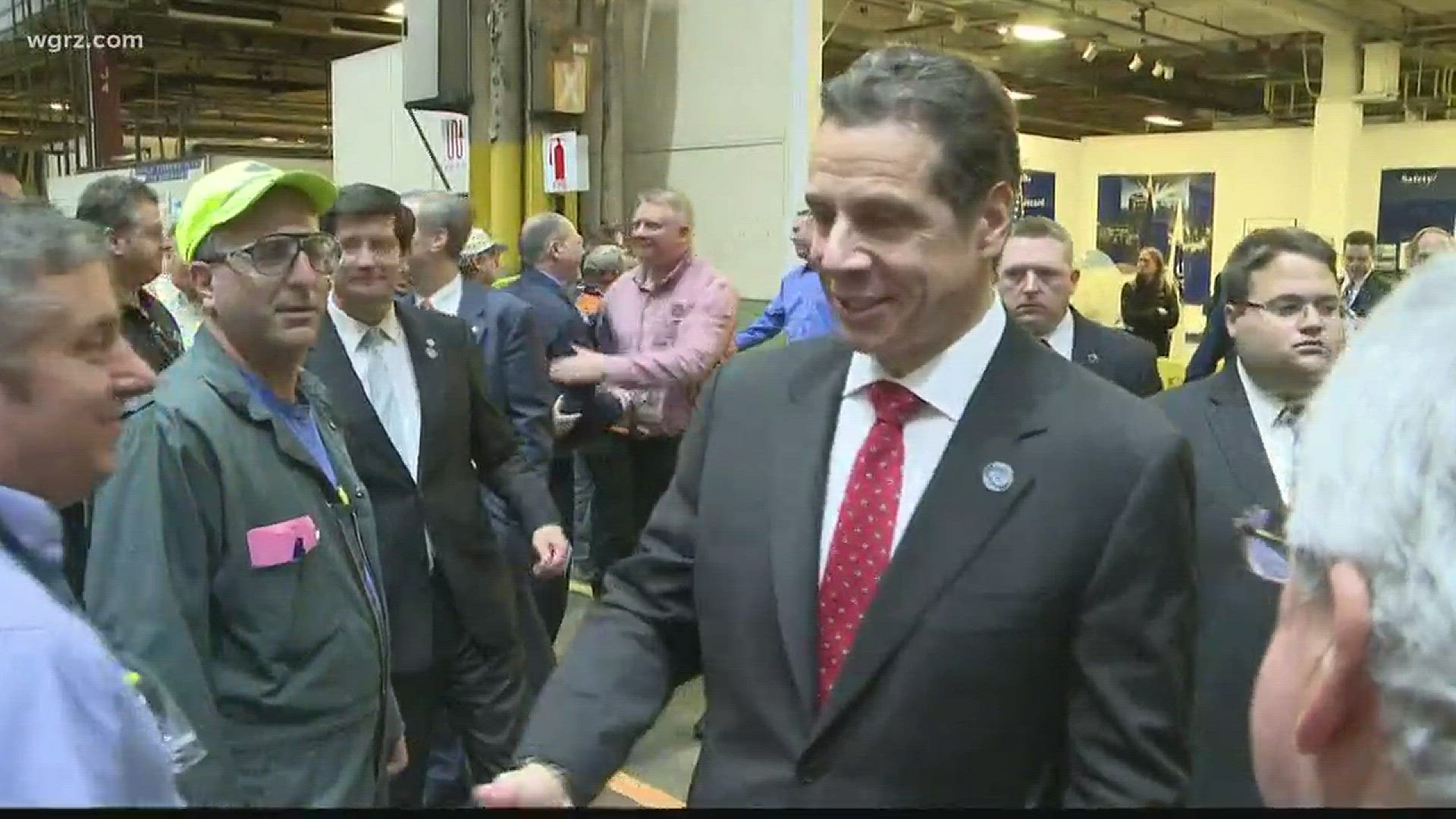BUFFALO, NY — Along with laying out a spending plan for the state’s upcoming fiscal year, Gov. Andrew Cuomo’s proposed budget contains policy initiatives that appear to have not much to do with dollars and cents.
One item proposes term limits for those elected to state office, including future governors, who if the legislation is adopted could serve no more than eight years.
Similarly, state legislators would not be able to serve any more than eight years, while their terms, which currently are for two years, would be lengthened to four years.
“When you look at the multitude of elected officials who have been either convicted or indicted for corruption, one of the few common strands between them is that they had been in office for a very long time," said NYS Sen Christopher Jacobs (R-60th District) who applauded the Governor’s push for term limits.
Notably, Jacobs made reference to former State Assembly Speaker Sheldon Silver, and former State Senate Majority Leader Dean Skelos, both of whom were charged with corruption in recent years.
“Between those two elected officials, they were in office for over 70 years,” Jacobs said.
However, while they may have been returned to office multiple times by voters, neither Silver nor Skelos were appointed to their powerful leadership posts by their constituents.
They were appointed to those positions by a vote of their legislative colleagues.
This has led some to suggest that, rather than deny citizens their ability to return their representatives to Albany for as many times as they may wish, the term limits — if any — should be placed on how long they can serve as legislative leaders once they get there.
“I am also for reforming those internal rules governing the legislature,” said Jacobs, while noting that the legislative house in which he serves, the State Senate, has already placed a cap on how long someone can serve as its Majority Leader. Meanwhile, the Assembly has no such restriction on how long someone may serve as its Speaker.
Implementing term limits would require a change in the state constitution by voters in a statewide referendum.
But that would not occur until after the idea is first passed by two successively elected legislatures.
Which means, according to the process, the first people who vote yea or nay would be the very people that would be subject to term limits.
"I'm not saying it wouldn’t be tough, but we had a significant gain with pension reforms last year when there may have been a lot of internal interest in voting against that,” said Jacobs. “Nothing is better than an idea whose time has come. Maybe this might be the time.”
Other non-spending items include proposals by Cuomo to allow hotels that don’t have restaurants to have mini bars in their rooms, ban even hands-free mobile phone use in cars by drivers under 18, and requiring all back seat passengers- even adults - to use seat belts.
Cuomo is far from the first Governor to have made a practice of putting such items into their budgets.
With the annual pressure that comes each spring to deliver an on-time budget, the state’s chief executives (both present and past) have put bill language into spending plans as a means of being able to hold the budget “hostage”, in order to get items passed while avoiding the normal and sometimes lengthy legislative process, which features more analysis, debate and transparency.
Notably, Cuomo used this as a means to push through Common Core a few years back, a controversial education policy which was proffered as a budget item.
In 2017, Jacobs sponsored a bill that would end this practice by requiring that budget language specifically relate to appropriations or revenues.

